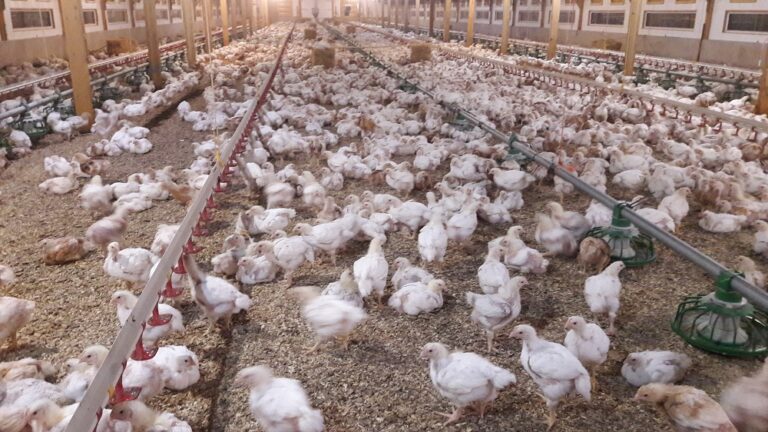The war in Ukraine will inevitably lead to price rises, the British Poultry Council has warned, with some products like organic poultry becoming unviable due to lack of feed.
Chief executive Richard Griffiths has written an article arguing the invasion must lead to more open discussions about Britain’s food security and our reliance on international supply chains that can break down leaving UK consumers vulnerable.
Griffiths said the “canary in the coal mine” for British poultry meat is organic production. “The majority of organic wheat is sourced from Ukraine and that supply route is evaporating quickly. Restricted access to organic wheat plus increased costs may see organic poultry production becoming unviable,” he wrote. “Whilst this would be frustrating for those who want to purchase organic poultry, it is a deeply concerning indicator of how all supply chains are coming under immense pressure.”
This has put food security back in the spotlight and means businesses, Government and consumers must all “recognise the importance of British food for long-term national security, and invest more money and effort in low impact, high productivity food and farming.”
Griffiths said a higher profile for food security was a good thing, and it was important to talk about our reliance on international supply chains.
“For example, while we are a huge purchaser of feed quality wheat from UK farmers it does need to be supplemented from overseas sources; and when it comes to products we export a lot of dark meat that the British consumer does not favour. We should be bolstering what we can produce in this country and using those strong supply chains to facilitate trade.”
The downside was when businesses imported food we need at a cheaper cost to consumers. “Reliance on imports only creates a nation that is dependent on the will and whims of others,” said Griffiths. “We would hand over all control of quantity and price to other nations who, even the most trusted trading partners, will prioritise their own citizens in the face of global crises. We are about 60% self-sufficient in food so there is no way the British food system can isolate itself from events abroad, and to go lower would seriously compromise the country’s ability to weather the global pressures we are now feeling.”
He added the industry would have to have an honest conversation about food inflation. “It is concerning to hear the Government urge people in this country to accept “enduring hardships” as a way of ‘doing our bit’ to help Ukraine when actually solving underlying systemic problems in British food production – whilst we still can – would be far more beneficial for everyone.
“The most reliable source of food we have is what we produce at home. If we are serious about addressing the growing risks of food insecurity in Britain, we have to explore it through the lens of British self-sufficiency.”


